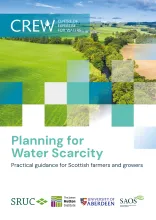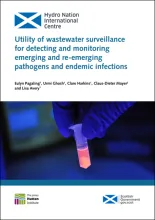CRW2025_08 Assessing Future Socio-Economic Water Demand in Scotland: Drivers and Patterns
Type of project: Capacity Building Project
Overview: CREW invites proposals for a c.7.5 month Capacity Building project to provide a national assessment of future socio-economic demands on Scotland’s water resources, identifying key drivers and patterns.
Budget: Funding available £115,000 exclusive of VAT (where applicable).
Call dates: Tuesday 24th February – Tuesday 21st April, 15:00.









